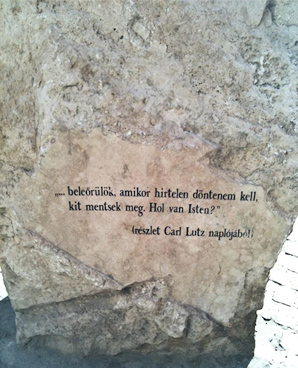About six million Jews were murdered in the Holocaust. The ‘Shoa’ – as it is called in Hebrew – is a true terrible historical event which we all know. Many of the survivors still live among us, some carry on their skin the mark of the death camps. There is plenty of documentation in the form of photos, videos and other recordings.
The Jewish religion, especially its meticulous Orthodox branch, contains many rituals that indicate historical events – true events and legendary ones. Various fasts fill the Hebrew calendar, and many compulsory story-telling rituals are found. A wealth of details is included in these rituals, and performing them rigorously is an inseparable part of many Jewish lives.
Yet, ironically you will not find specific rituals that pertain to the most horrific disaster in the history of the Jewish nation, neither a special blessing nor any specific clothing, certainly not any fasting. One could argue if shouting “Nazis” at policemen during demonstrations of ultra-Orthodox Jews constitutes recognition of the Holocaust, but the ultra-Orthodox deliberate ignoring of the memorial day is well-known.

Quoting Carl Lutz:
“Angry I have to decide whom to save… Where is God?”
The modern enlightened world rightfully condemns “Holocaust deniers”. The modern enlightened world – apart from acting to prevent future similar events – is keen on reviewing history according to real criteria: If something did happen, it is wrong to deny it, and if something did not happen, it is wrong to say otherwise.
We have often heard the comparison between so-called “denying” the myth of the Jewish Exodus from ancient Egypt and denying the Holocaust. In practice, of course, the opposite is true. Promoting ancient legends as pure history greatly assists those who deny the Holocaust. The Ahmadinejads of the world could simply say: “You see? You are used to invent stories that serve you well.”
Religion sanctifies the ancient, not necessarily the true. Within religion, “true” and “false” are very fluid, as are important and unimportant, major and minor. Nowadays, the “sacred” is the telling of the Jewish Exodus, the important is the telling of the Holocaust.






